Resources for Dog Guardians
Resource Library
The Companion Veterinary Clinic Training Team is passionate about animal behaviour education. We’re excited to offer this new resource library to address your most frequently asked questions! Our Fear Free Certified Trainers offer professional positive, science-based methods of training and behaviour modification. Click here for more information about our virtual training classes and private training options. To be notified of new handouts as they come available, and learn valuable training tips, follow us on Instagram and Facebook.
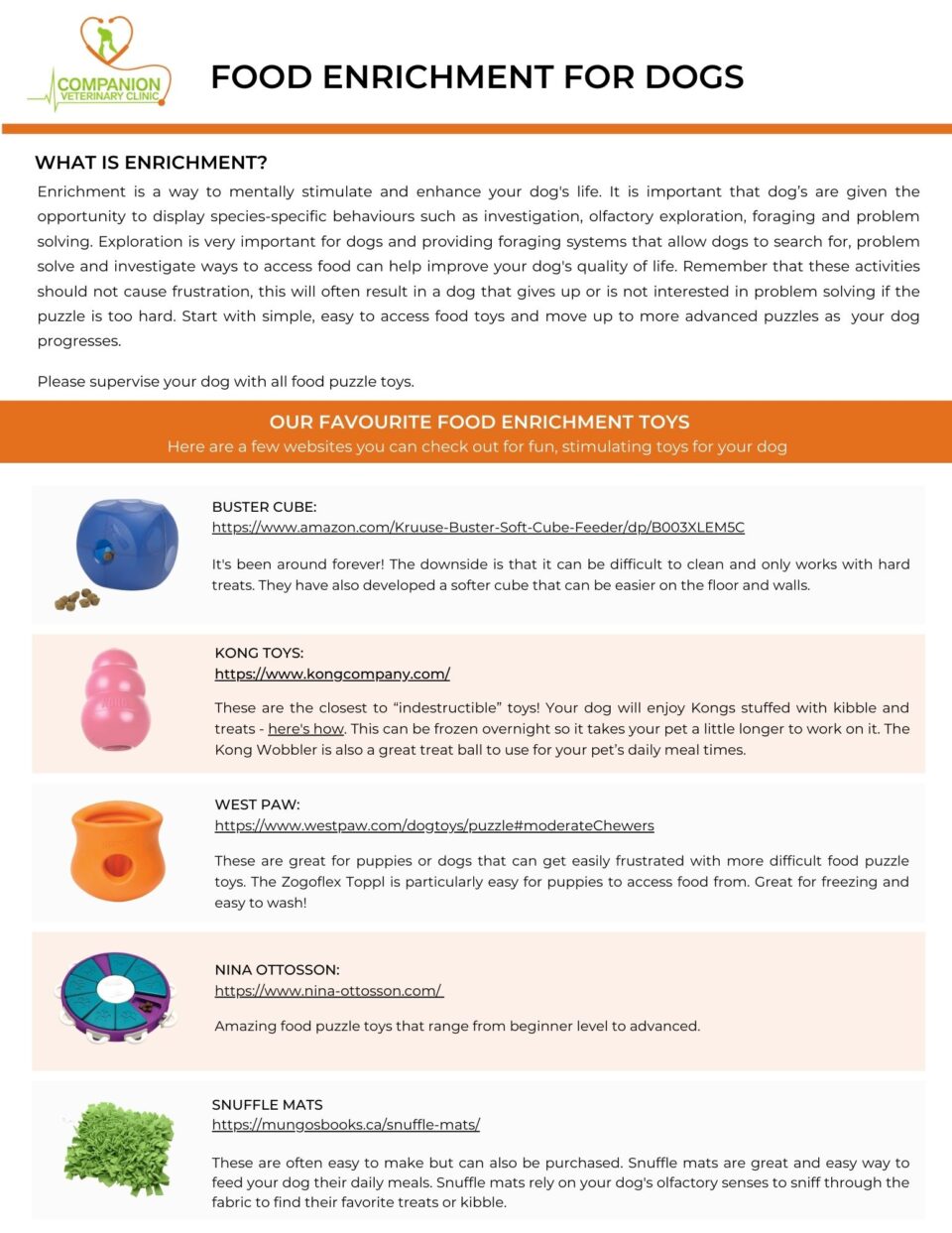
Food Enrichment for Dogs
Enrichment is a way to mentally stimulate and enhance your dog’s life. It is important that dog’s are given the opportunity to display species-specific behaviours such as investigation, olfactory exploration, foraging and problem solving. Exploration is very important for dogs and providing foraging systems that allow dogs to search for, problem solve and investigate ways to access food can help improve your dog’s quality of life. In this handout, you’ll find link to some of our favourite toys as well as homemade enrichment ideas.
If you are unsure about the safety of any food puzzles or DIY enrichments, please call the clinic and ask.
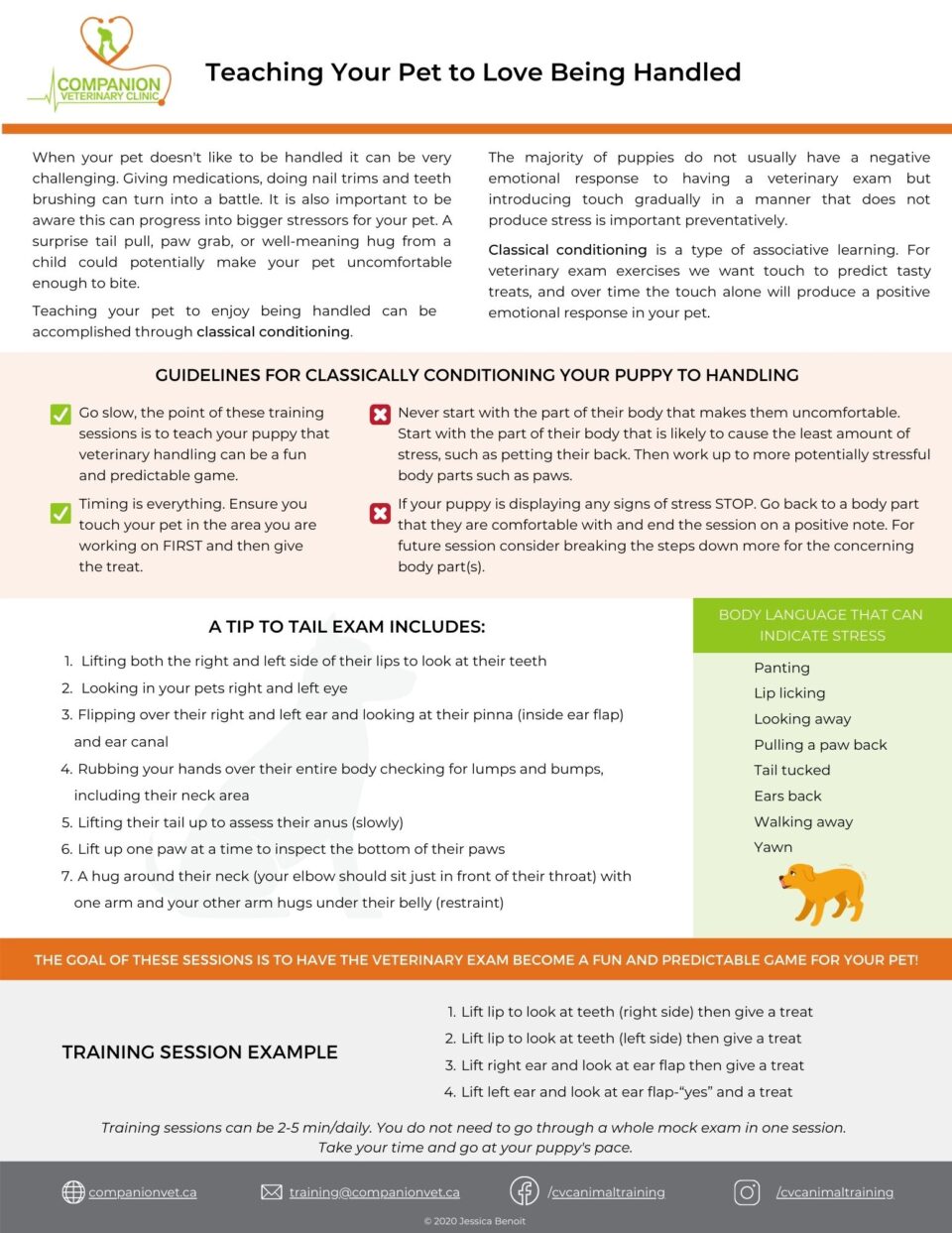
Teaching Your Pet to Love Being Handled
When your pet doesn’t like to be handled it can be very challenging. Giving medications, doing nail trims and teeth brushing can turn into a battle. It is also important to be aware this can progress into bigger stressors for your pet. A surprise tail pull, paw grab, or well-meaning hug from a child could potentially make your pet uncomfortable enough to bite. This handout covers how to classically condition your pet to handling.
Did you know we offer Fear Free sessions? These sessions are designed to give you the skills to work on veterinary husbandry at home, and keep your pet comfortable during veterinary exams. These sessions could include nail trims, grooming, medication administration and more!
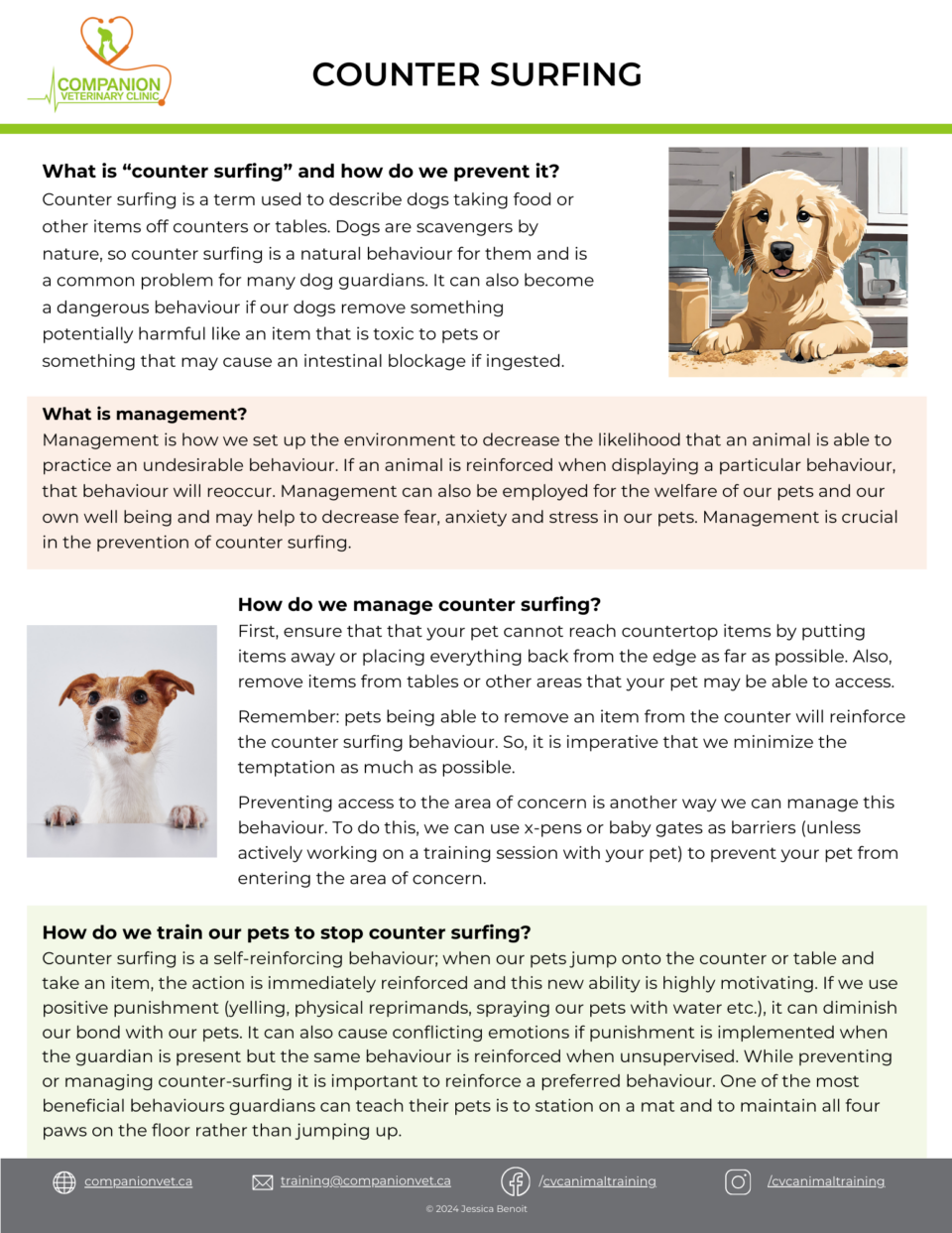
Counter Surfing
Counter surfing is a term used to describe dogs taking food or other items off counters or tables. Dogs are scavengers by nature, so counter surfing is a natural behaviour for them and is a common problem for many dog guardians. It can also become a dangerous behaviour if our dogs remove something potentially harmful like an item that is toxic to pets or something that may cause an intestinal blockage if ingested. In this handout, we cover how to manage this behaviour while you work up to training your dog to do an alternative appropriate behaviour.
We also offer private training options to help with counter surfing and other problem behaviours.
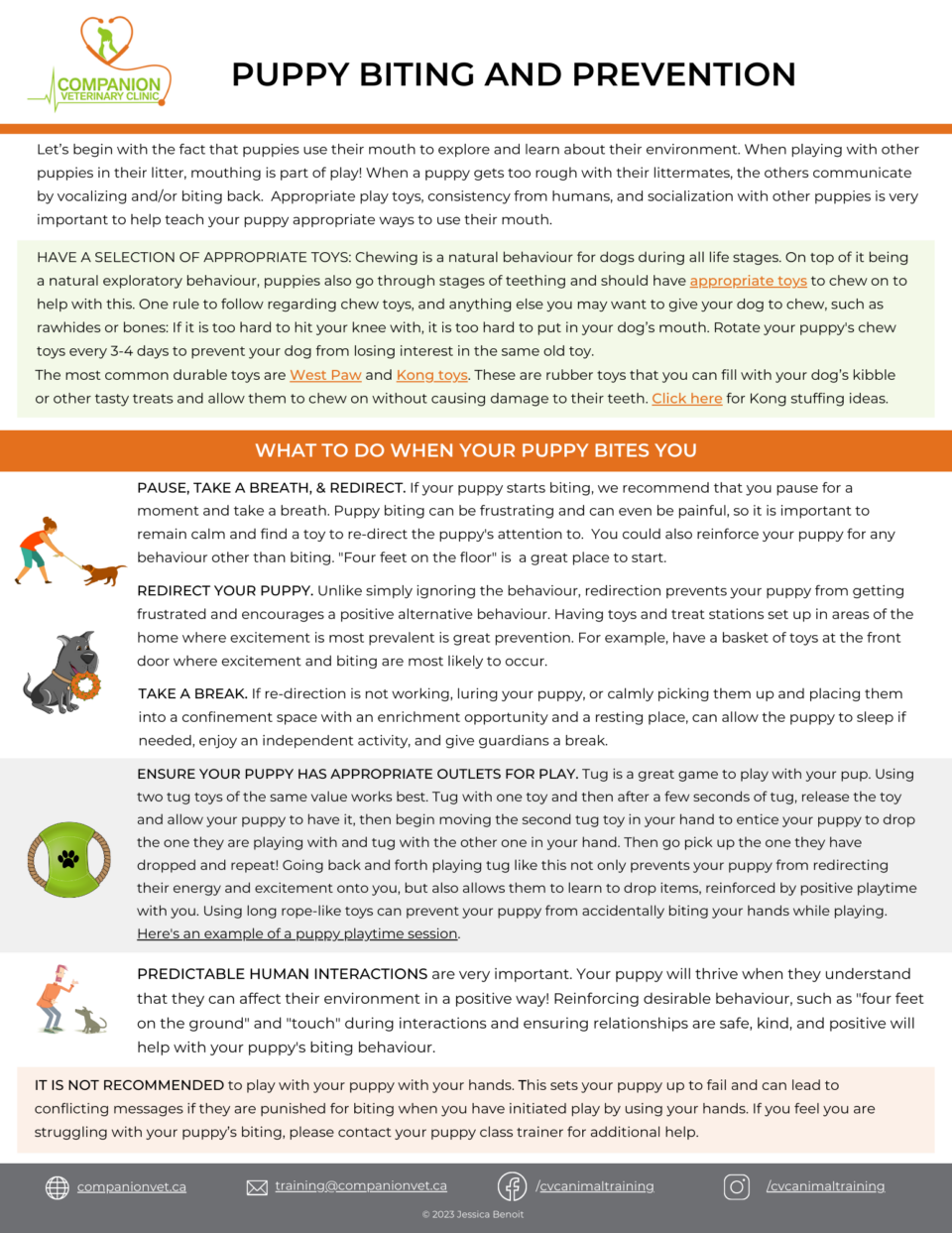
Puppy Biting and Prevention
Let’s begin by understanding that puppies use their mouth to explore and learn about their environment. When playing with other puppies in their litter, mouthing is part of play, and when they get too rough with their littermates, they communicate by vocalizing and/or biting back. Appropriate play toys, consistency from humans, and socialization with other puppies is very important to help teach your puppy appropriate ways to use their mouths. In this handout, you’ll learn how to set your puppy up to be successful and what to do when your puppy bites you.
We cover puppy biting, basic manners, and a variety of other topics in our virtual puppy classes.
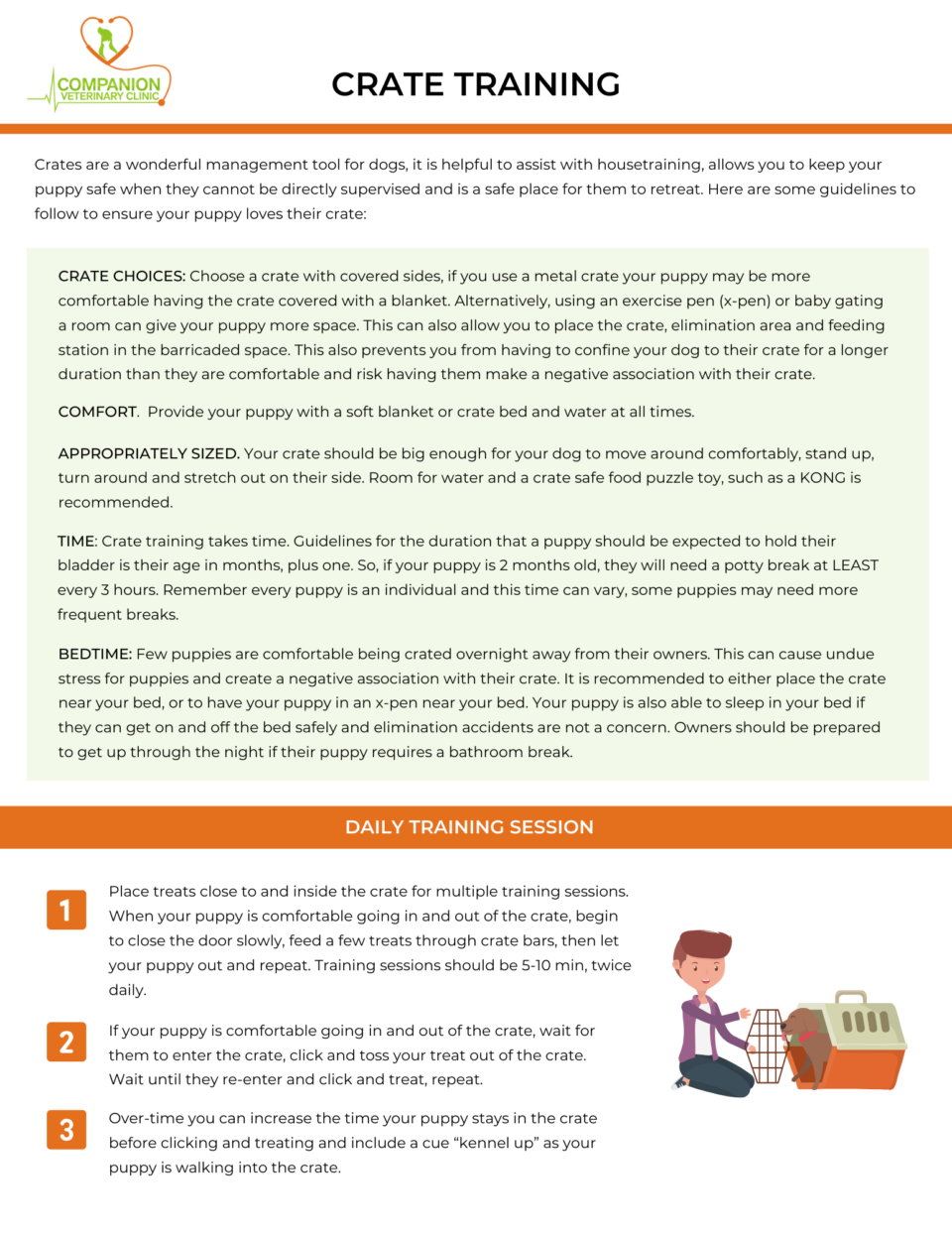
Crate Training
Crates are a wonderful management tool for dogs, it is helpful to assist with housetraining, allows you to keep your puppy safe when they cannot be directly supervised and is a safe place for them to retreat. Here are some guidelines to follow to ensure your puppy loves their crate!
We cover crate training, along with house training and a variety of other topics in our puppy classes.
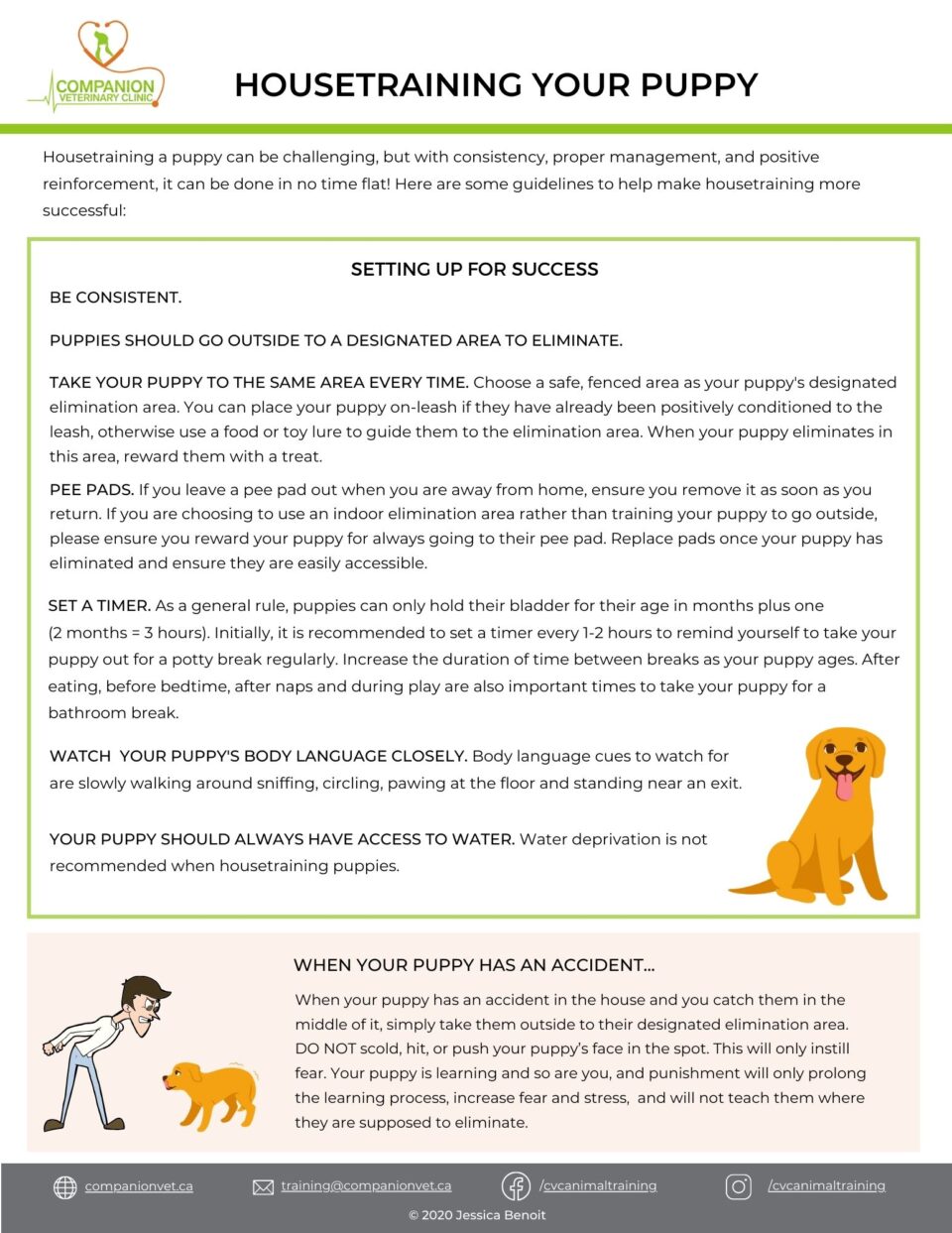
Housetraining
It can be challenging housetraining a puppy but with consistency, proper management, and positive reinforcement, you can housetrain your puppy in no time. Here are some guidelines to help make house training more successful!
We cover housetraining, along with crate training and a variety of other topics in our puppy classes.
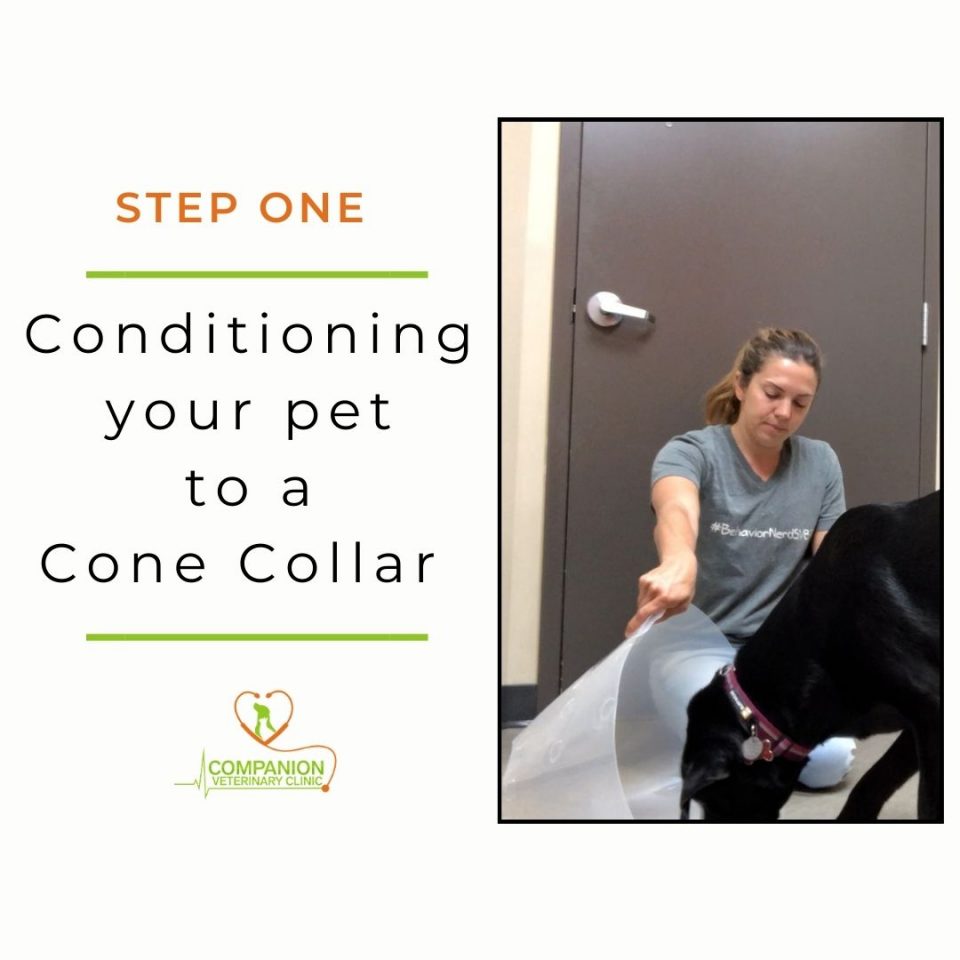
Conditioning Your Pet to a Cone Collar
Conditioning your pet to a cone collar prior to a procedure can be very helpful! Steps should be broken down to ensure your pet is successful doing every step and does not display signs of fear, anxiety or stress. There are many different kinds of cone collars, traditional plastic ones, soft collars, inflatable cone collars and surgical onesies that can help with recovery from medical procedures.
Here is a video on how to introduce the cone collar to your pet to help them build a positive association.
Did you know we offer Fear Free sessions? These sessions are designed to give you the skills to work on veterinary husbandry at home, and keep your pet comfortable during veterinary exams. These sessions could include nail trims, grooming, conditioning to a cone collar, medication administration and more!
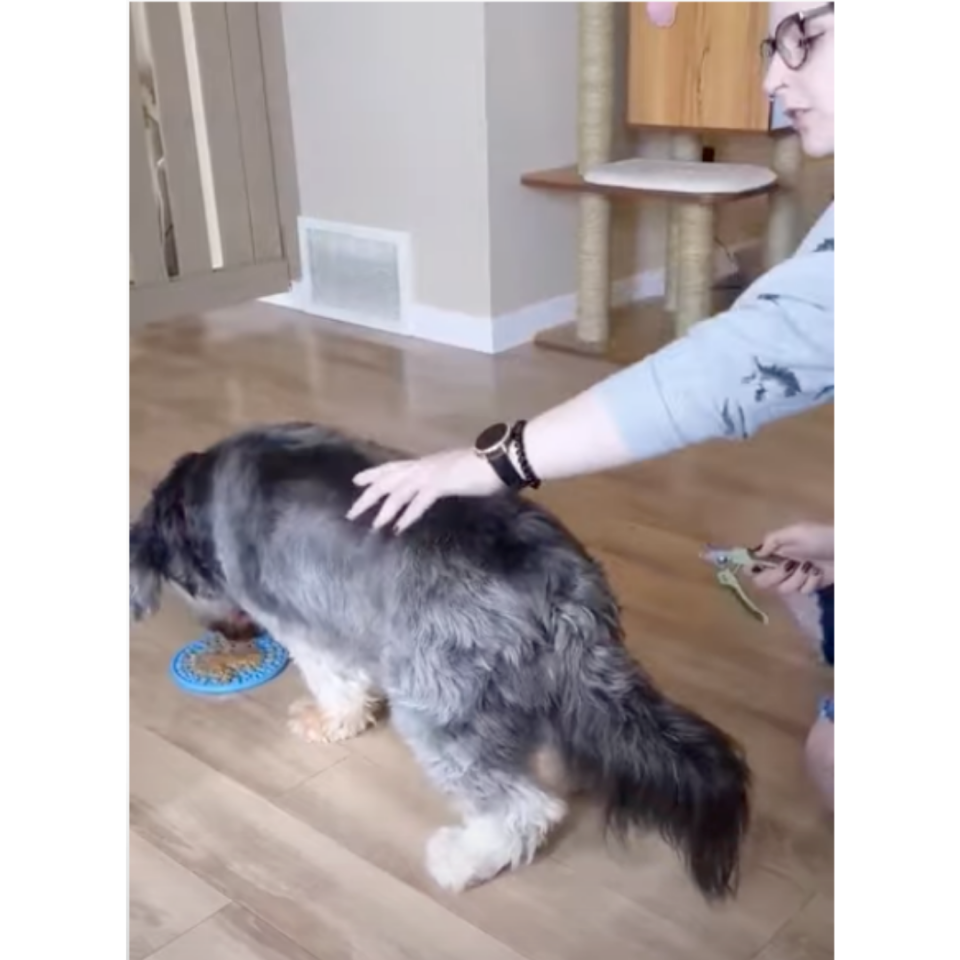
How To Trim Your Dog’s Nails
Here is Shelby demonstrating how to do a dog nail trim with food distraction. Always remember to watch your dog for signs of stress such as; panting, lip licking, looking away, pulling a paw back, tail tucked, ears back, walking away, yawning, and not eating their treats.
Remember: You don’t have to trim every nail in one session.
If you are interested in desensitizing and counter-conditioning your pet to nail trims because it causes them fear/anxiety, please contact us at training@companionvet.ca for assistance.
